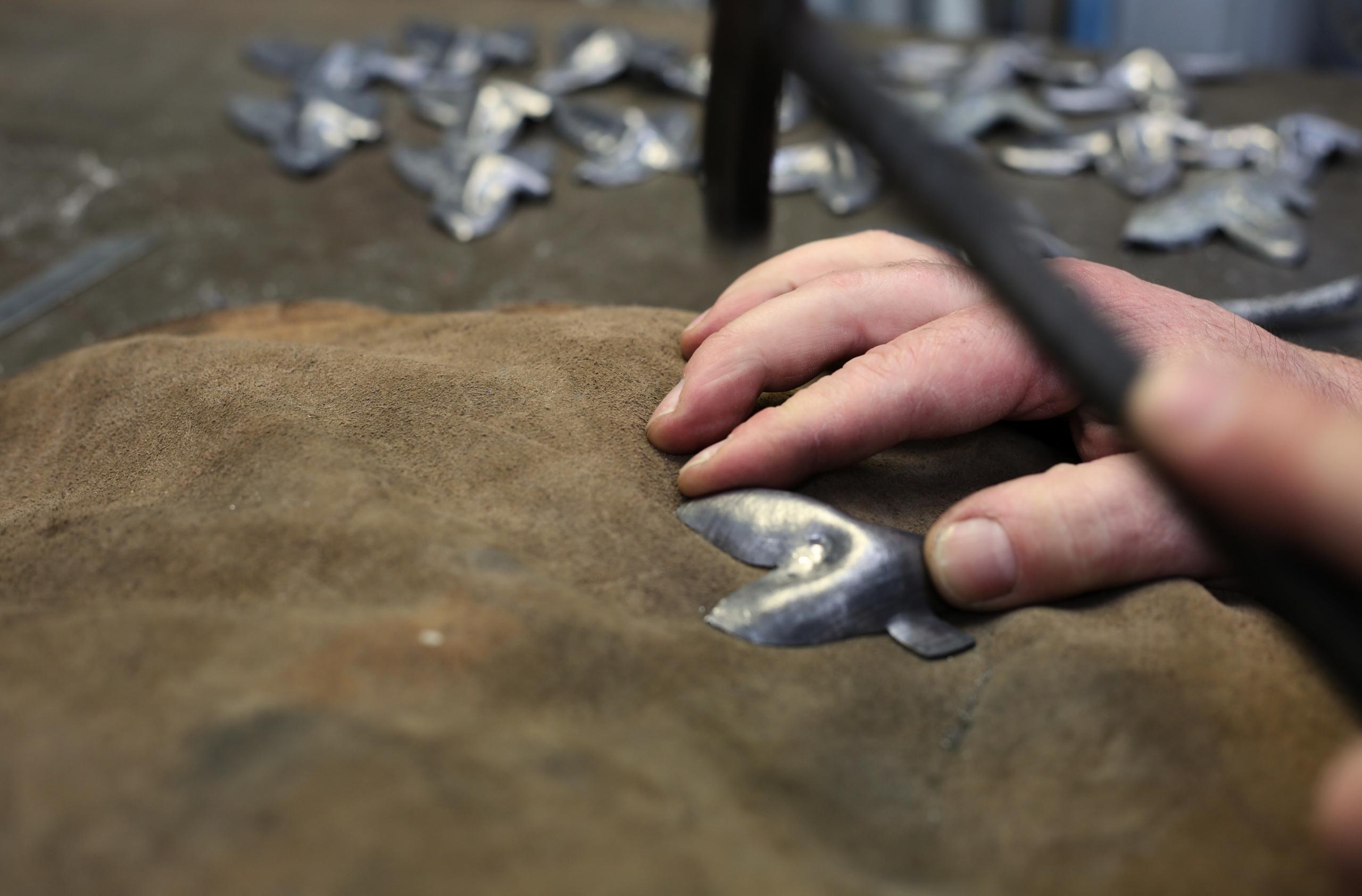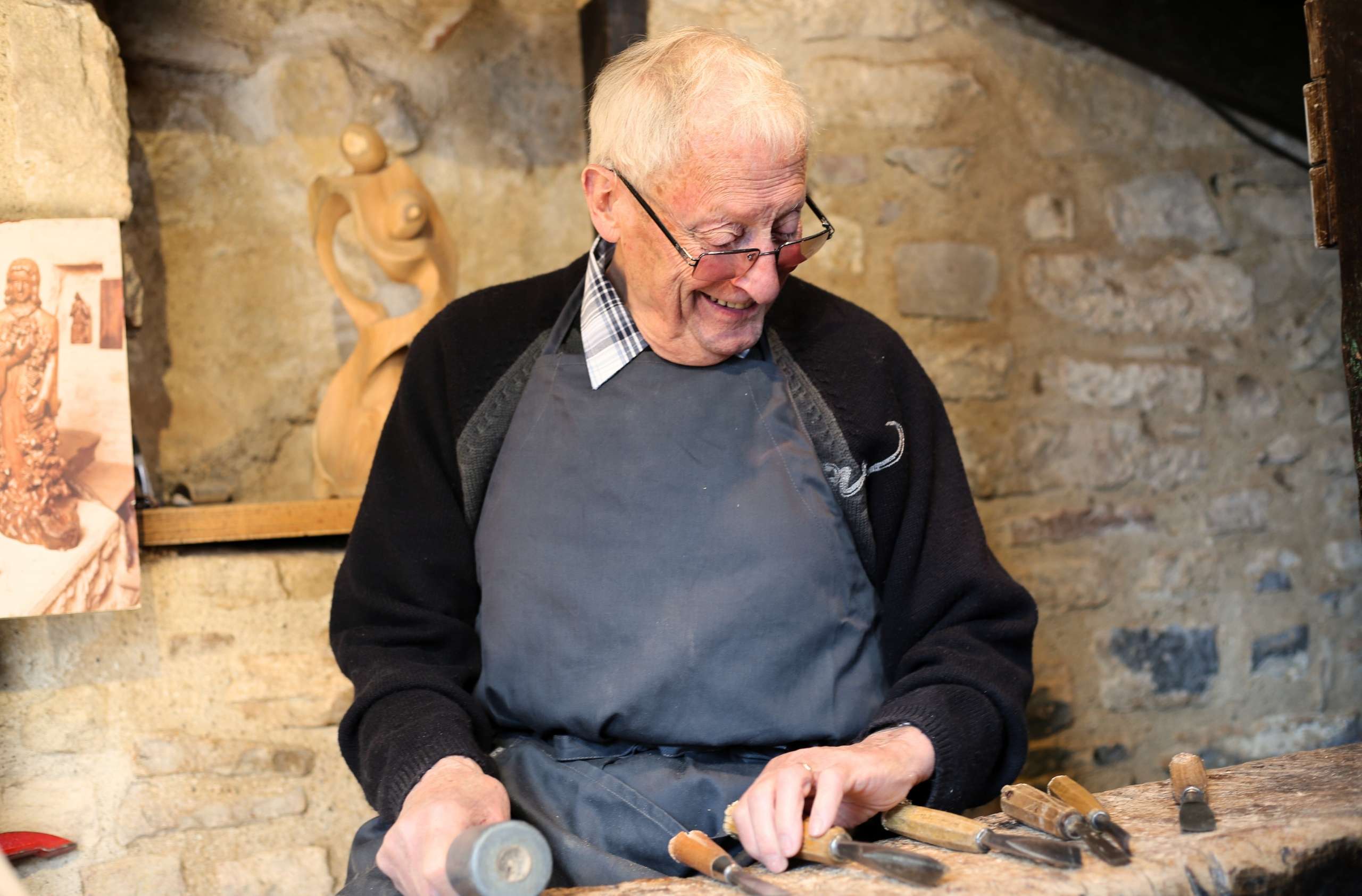Living Cultures –
Intangible cultural heritage: an invisible and immeasurable wealth for our nation
Living Cultures –
Intangible cultural heritage:
an invisible
and immeasurable
wealth for
our nation
What if we possessed an invaluable treasure
through our knowledge, our skills, and our traditions?
through our knowledge, our skills, and our traditions?
What if we possessed
an invaluable treasure
through our knowledge,
our skills,
and our traditions?
an invaluable treasure
through our knowledge,
our skills,
and our traditions?
As our country, France, has recently experienced a national tragedy with the theft of its jewels, should we not also reflect on the almost daily loss of our intangible cultural heritage?
A Concept Defined by UNESCO, but a much broader challenge
Intangible cultural heritage is a subject I have been working on since 2010.
It is an area particularly close to my heart.
Although first highlighted by UNESCO and still mainly carried today by anthropologists and academics, I am convinced that it holds a much broader potential.
It should be fully taken into account by the State, foundations, luxury maisons, hospitality, gastronomy, the crafts sector, tourism, culture, and even education.
As our country, France, has recently experienced a national tragedy with the theft of its jewels, should we not also reflect on the almost daily loss of our intangible cultural heritage?
A Concept Defined by UNESCO, but a much broader challenge
Intangible cultural heritage is a subject I have been working on since 2010.
It is an area particularly close to my heart.
Although first highlighted by UNESCO and still mainly carried today by anthropologists and academics, I am convinced that it holds a much broader potential.
It should be fully taken into account by the State, foundations, luxury maisons, hospitality, gastronomy, the crafts sector, tourism, culture, and even education.


A daily presence
In France, intangible cultural heritage is all around us: craftsmanship, traditions, festive events, knowledge and practices related to nature…
Indeed, we all know of something handed down from generation to generation: a winemaking tradition, a unique skill, a regional recipe, a village celebration, a local song…
Without even realizing it, we are immersed in this cultural wealth every single day.
A daily presence
In France, intangible cultural heritage is all around us: craftsmanship, traditions, festive events, knowledge and practices related to nature…
Indeed, we all know of something handed down from generation to generation: a winemaking tradition, a unique skill, a regional recipe, a village celebration, a local song…
Without even realizing it, we are immersed in this cultural wealth every single day.
A fragile heritage
This heritage disappears every day, often in indifference.
Craftsmen close their workshops, crushed by heavy charges or lacking the means to transmit their know-how or to find someone to take over their atelier. Traditions fade away with those who carried them.
Some will say that this is the natural course of modernity and progress.
And it is true that no knowledge or practice can be artificially kept alive if no one is attached to it.
A fragile heritage
This heritage disappears every day, often in indifference.
Craftsmen close their workshops, crushed by heavy charges or lacking the means to transmit their know-how or to find someone to take over their atelier. Traditions fade away with those who carried them.
Some will say that this is the natural course of modernity and progress.
And it is true that no knowledge or practice can be artificially kept alive if no one is attached to it.
Preserving without freezing
But should we therefore remain passive?
Speaking of intangible cultural heritage does not mean clinging to the past or succumbing to nostalgia.
On the contrary, it means recognizing that there are living forms of knowledge, carried by men and women who wish to continue transmitting them. It also means supporting those who work hard every day.
This requires offering them real levers: export opportunities, communication, networks, training, platforms for promotion, international visibility…
Preserving intangible cultural heritage is not about looking backward: it is about breathing life into the present and giving depth to the future.
Preserving
without freezing
But should we therefore remain passive?
Speaking of intangible cultural heritage does not mean clinging to the past or succumbing to nostalgia.
On the contrary, it means recognizing that there are living forms of knowledge, carried by men and women who wish to continue transmitting them. It also means supporting those who work hard every day.
This requires offering them real levers: export opportunities, communication, networks, training, platforms for promotion, international visibility…
Preserving intangible cultural heritage is not about looking backward: it is about breathing life into the present and giving depth to the future.
“Culture is not inherited, it is conquered.”
André Malraux
“Culture is not inherited,
it is conquered.”
André Malraux
it is conquered.”


The Economic potential of
intangible cultural heritage
Although there are few precise figures on the disappearance of intangible cultural heritage, here are some data points to consider:
€15 billion: the value of cultural tourism in France in 2012
€30 billion: the potential value of cultural tourism in France in 2017, had its potential, notably that of intangible cultural heritage, been fully leveraged
€15 billion: the estimated economic impact of cultural tourism in 2025
Today, tourism revolves largely around culture, heritage, and the art of living. Yet it fails to capitalize on the extraordinary potential of intangible cultural heritage.
The Economic potential
of intangible
cultural heritage
Although there are few precise figures on the disappearance of intangible cultural heritage, here are some data points to consider:
€15 billion: the value of cultural tourism in France in 2012
€30 billion: the potential value of cultural tourism in France in 2017, had its potential, notably that of intangible cultural heritage, been fully leveraged
€15 billion: the estimated economic impact of cultural tourism in 2025
Today, tourism revolves largely around culture, heritage, and the art of living. Yet it fails to capitalize on the extraordinary potential of intangible cultural heritage.
Valuing the human dimension
We often associate the word “heritage” with monuments, museums, or historic sites. But heritage is also, and above all, human beings.
Craftsmen, creators, bearers of traditions who fight every day to transmit a skill, perfect a gesture, and create emotions through a work of art, a dish, or an object.
I remember an elected official once showing me her glass of wine and saying: “See, Noëlie, here we are celebrating intangible cultural heritage.” Sadly, she had misunderstood. Intangible cultural heritage was not just the wine in the glass, but the human being behind it: the winemaker, his gestures, his history, his know-how. And where was he? Simply absent from that evening.
Valuing the
human dimension
We often associate the word “heritage” with monuments, museums, or historic sites. But heritage is also, and above all, human beings.
Craftsmen, creators, bearers of traditions who fight every day to transmit a skill, perfect a gesture, and create emotions through a work of art, a dish, or an object.
I remember an elected official once showing me her glass of wine and saying: “See, Noëlie, here we are celebrating intangible cultural heritage.” Sadly, she had misunderstood. Intangible cultural heritage was not just the wine in the glass, but the human being behind it: the winemaker, his gestures, his history, his know-how. And where was he? Simply absent from that evening.
A Strategic opportunity for tomorrow
Heritage as a whole is often overlooked, underfunded, or even perceived as outdated. The means allocated to it are derisory, and even more so for intangible cultural heritage.
Yet it represents an immense opportunity for the luxury, gastronomy, hospitality, tourism, and craft sectors.
It is an inexhaustible source of authenticity and therefore of economic and tourist appeal.
Some organizations have already understood this. At the end of 2024, Relais & Châteaux concluded a partnership with UNESCO to develop joint projects around biodiversity, culinary traditions, and hospitality.
Embracing intangible cultural heritage as a sustainable lever is not only possible, but urgent and indispensable.
A Strategic opportunity
for tomorrow
Heritage as a whole is often overlooked, underfunded, or even perceived as outdated. The means allocated to it are derisory, and even more so for intangible cultural heritage.
Yet it represents an immense opportunity for the luxury, gastronomy, hospitality, tourism, and craft sectors.
It is an inexhaustible source of authenticity and therefore of economic and tourist appeal.
Some organizations have already understood this. At the end of 2024, Relais & Châteaux concluded a partnership with UNESCO to develop joint projects around biodiversity, culinary traditions, and hospitality.
Embracing intangible cultural heritage as a sustainable lever is not only possible, but urgent and indispensable.
A global issue,
with concrete solutions
For more than ten years, I have devoted myself to this subject.
I support organizations, territories, and companies that wish to explore and enhance the richness of their human capital and their intangible cultural heritage.
I notably offer a training program entitled:
“Intangible cultural heritage: exploring traditions and local know-how to enrich the customer experience.”
If you wish to bring meaning and sustainability to your field, I would be delighted to support you.
A global issue,
with concrete solutions
For more than ten years, I have devoted myself to this subject.
I support organizations, territories, and companies that wish to explore and enhance the richness of their human capital and their intangible cultural heritage.
I notably offer a training program entitled:
“Intangible cultural heritage: exploring traditions and local know-how to enrich the customer experience.”
If you wish to bring meaning and sustainability to your field, I would be delighted to support you.
Source 1 : https://www.atout-france.fr/fr/territoires-et-filieres-touristiques/culture-patrimoine-et-art-de-vivre
Source 2 : LEHALLE Evelyne, Les enjeux du tourisme culturel, 2012.
Source 1 : https://www.atout-france.fr/fr/territoires-et-filieres-touristiques/culture-patrimoine-et-art-de-vivre
Source 2 : LEHALLE Evelyne, Les enjeux du tourisme culturel, 2012.
